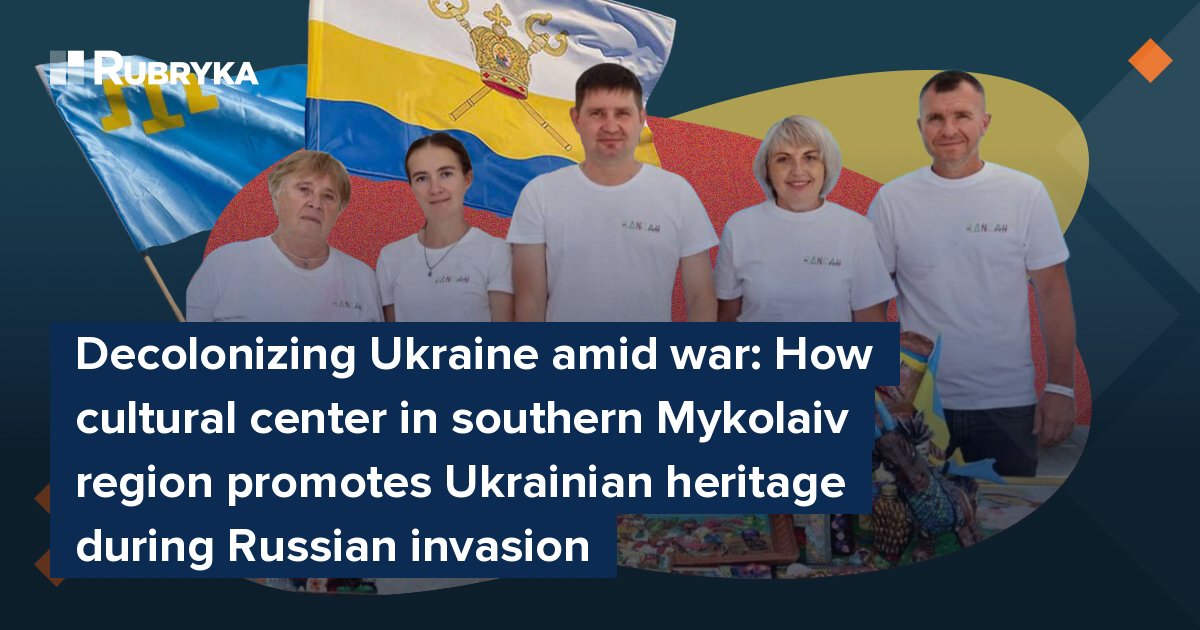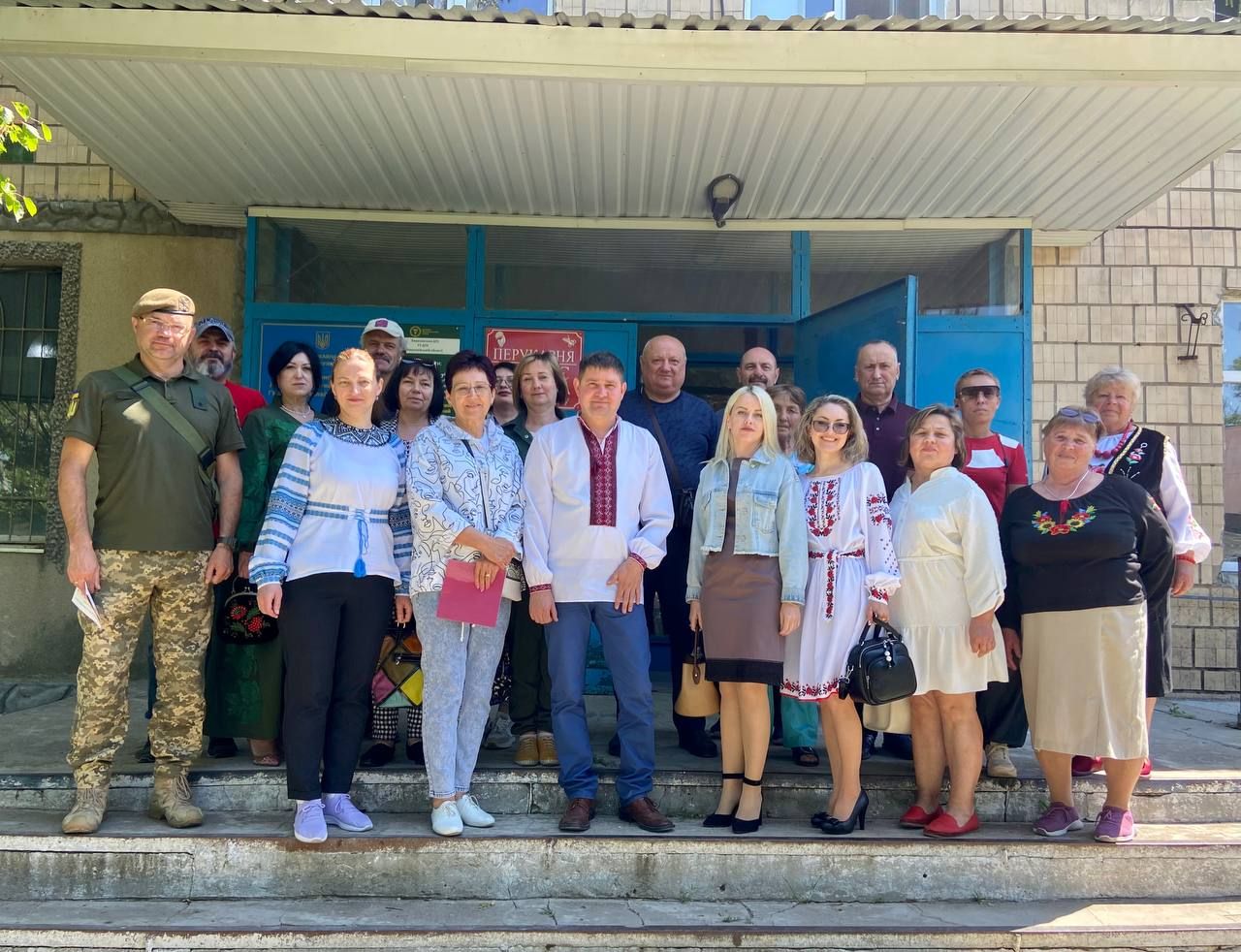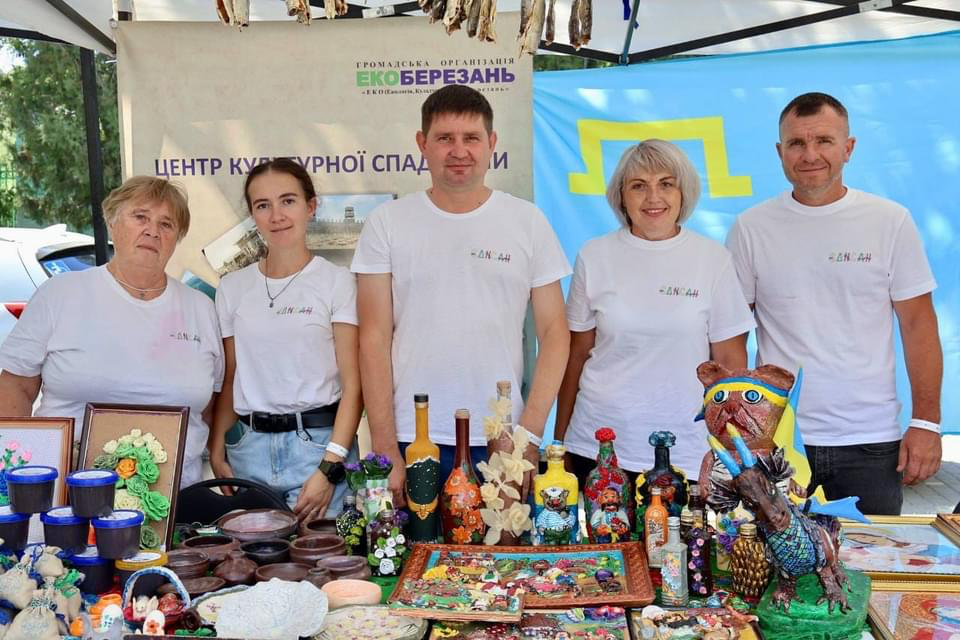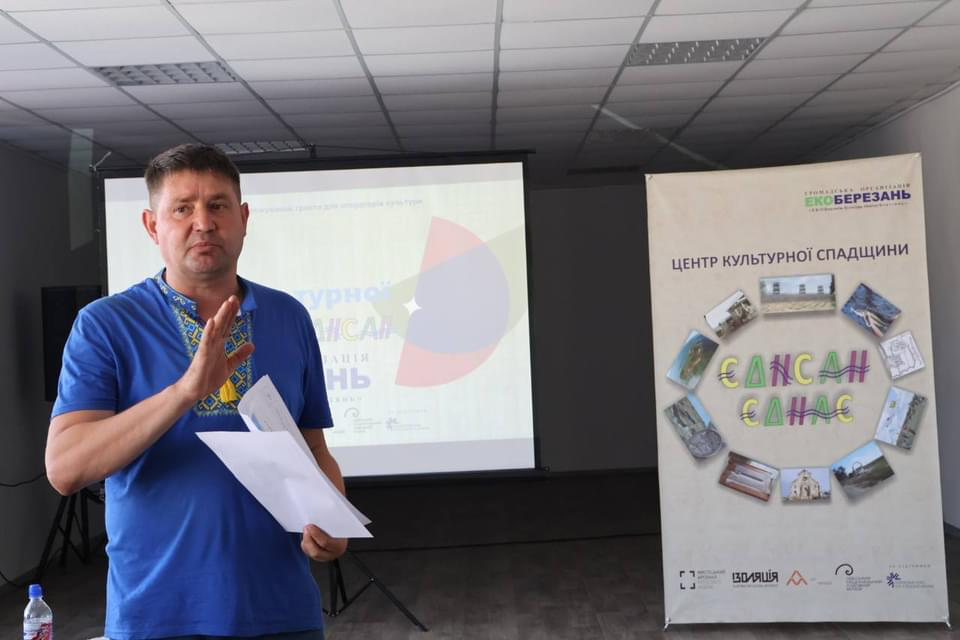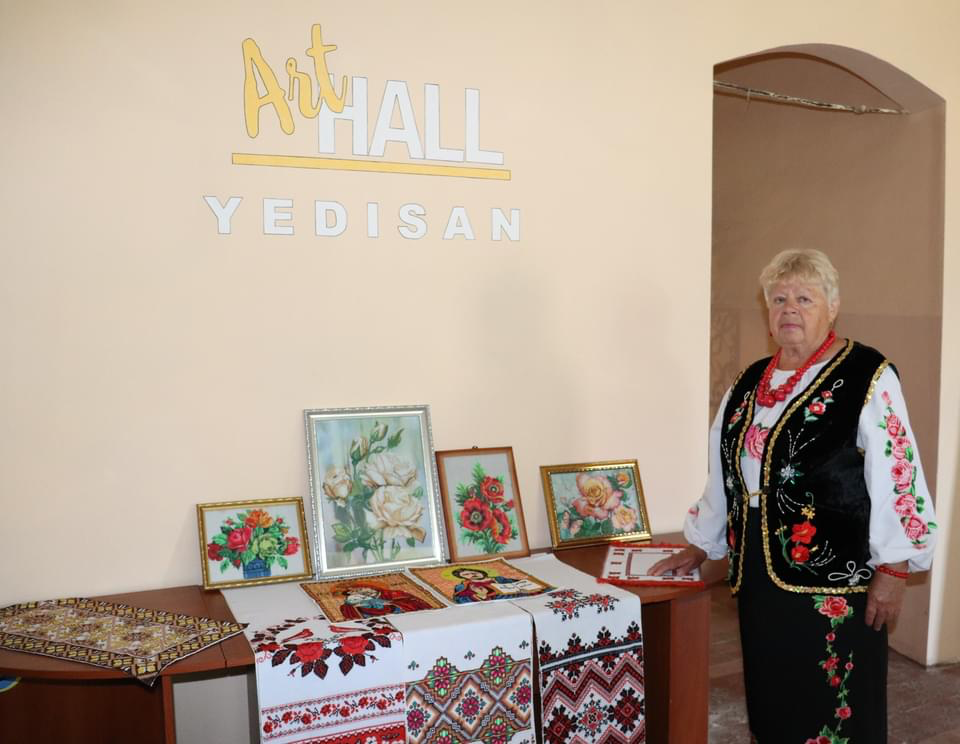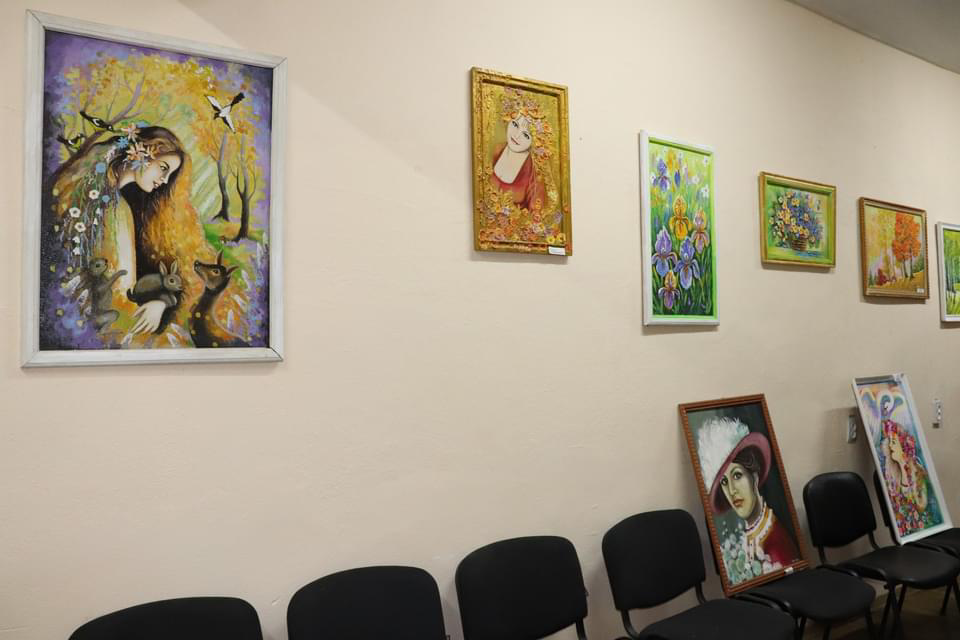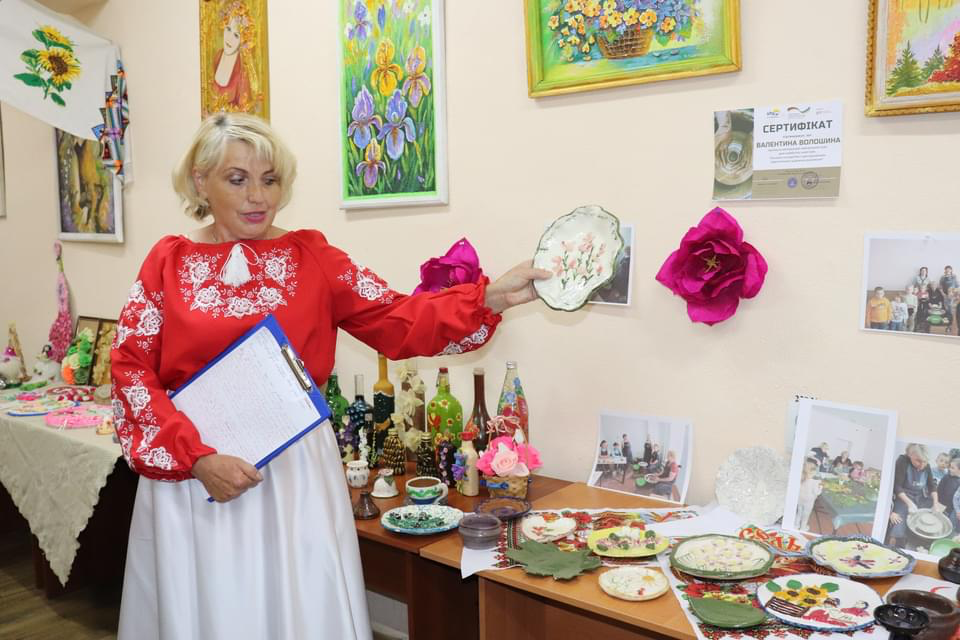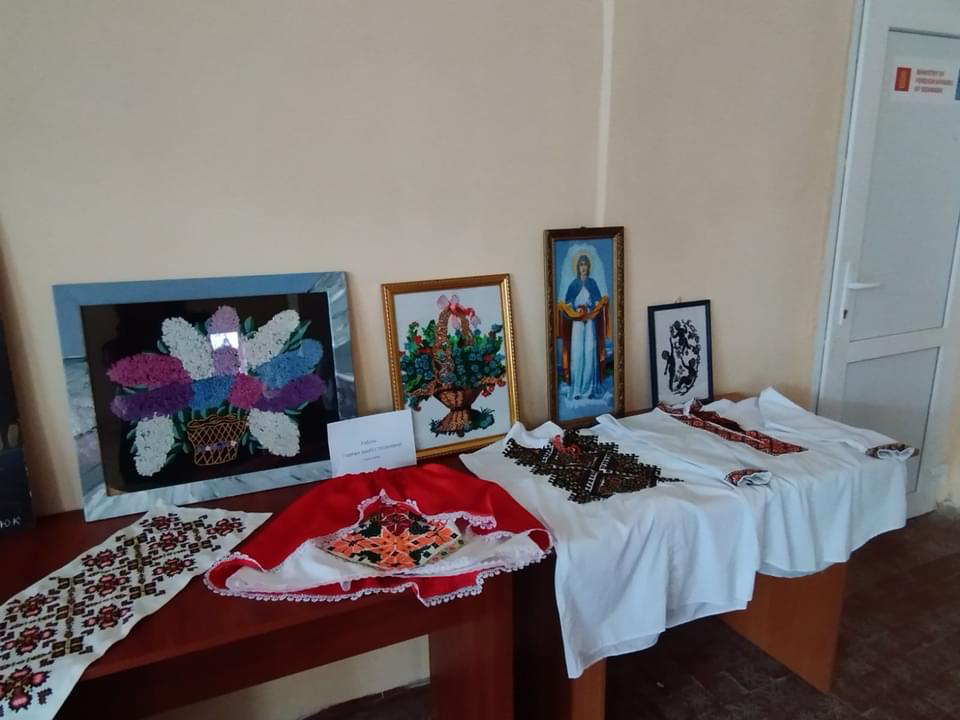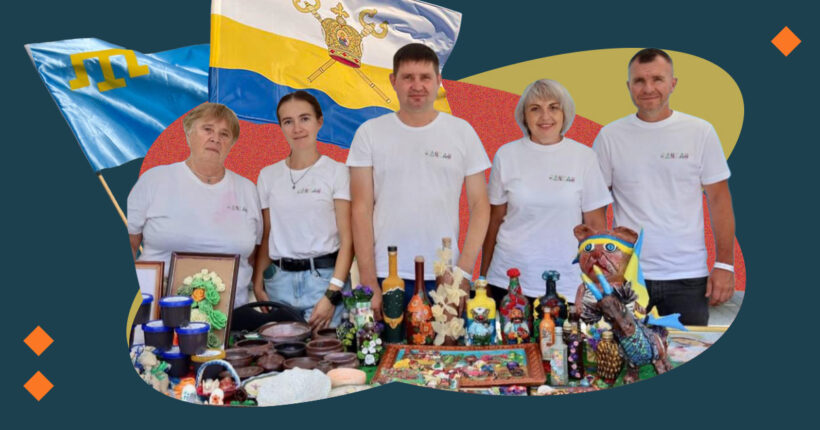
What's the problem?
For 2.5 years, Ukrainians have been fighting on the front line to defend their identity, their right to be themselves, and their right to live on their ancestral land. The Russian colonizing power once again wants to capture and devour Ukrainian culture, claim its achievements as its own, and destroy what's left, as it did occupying Ukrainian land during the times of the Russian and then Soviet empires.
For over 300 years, Russia has denied the existence of the Ukrainian language and identity and pushed the narrative that Ukraine is a "made-up" country. Another war started by Russia in Ukraine has forced Ukrainians to reevaluate the cultural narratives that the Russian Empire and later Soviet propaganda imposed on Ukrainians for centuries. Ukrainians are once again faced with many questions. "Who are we?" "Why is this happening?" "What's next?"
What's the solution?
A project in Ukraine's southern Mykolaiv region might help answer these questions. The Yedysan Cultural Heritage Center was designed to showcase all historical periods of Ukraine's south, particularly the area near the city of Ochakiv, and highlight its culture and traditions. The NGO ECE Berezan runs the project in partnership with the Ukrainian Institute of National Memory and local administrations.
"Yedysan, or Ochakiv region, or Ottoman/Khan Ukraine, is the pre-colonial name of our region, shared by Cossacks and Nogais, Ukrainian and Moldavian peasants, Turks and Crimean Tatars, Armenians, and Jews," says Oleksii Sydorchuk, the project leader and head of the nonprofit. "A unique culture and traditions were formed here, and evidence of this era has been preserved. Twenty years before Russia came to this area, 40,000 people lived in the city of Ochakiv and at least 300,000 in Yedysan. People lived, worked, and created a unique culture and traditions that have been passed down to us."
Oleksii believes that understanding Ukrainian identity and implementing decolonization policies in Ukraine's south — a territory the Russian aggressor wants to claim — is critical.
"While our national consciousness is growing, we have a unique opportunity to rethink the central narratives of Ukrainian statehood. We can review our history and cultural heritage not from the perspective of victims but by shedding the inferiority complex. Finally, we can soberly return to our civilizational achievements, relying on our potential," says the project leader. "We should not only rethink the significance of cultural heritage but also approach it as a national foundation, harmoniously combining traditions and highlighting the influence of various European cultures on life in Ukraine's south."
How does it work?
"Yedysan unites"
Today, Yedysan Center operates in ten communities in the Mykolaiv region, united by a shared multicultural space. According to the leader of the ECE Berezan, the project aims to integrate all the ethnic groups that inhabited these southern territories.
"Returning to Yedysan means returning to our roots. The influence of the Ottomans, Crimeans, Vlachs, and Moldavians on the culture of the south is crucial. The imperial attempts to turn this area into another average Russian province are not only laughable but disgusting," says Oleksii Sydorchuk.
Although the project is new and made from scratch, it builds on eleven years of nonprofit experience. Since 2013, ECE (Ecology, Culture, Education) Berezan has supported local culture and a clean environment. With the start of the full-scale war, the NGO also created a volunteer center and a project for integrating internally displaced persons (IDPs) into local communities.
The idea for the center was realized thanks to the "Heritage: Workspace" program from the Partnership Fund for a Resilient Ukraine. ECE Berezan was selected from 128 applicants as one of twelve winners and received a grant of about $11,000. As part of the project, activists create content about the region's history, assess Mykolaiv's cultural heritage, and organize events to support and promote local culture and history.
To achieve their goals, the ECE Berezan team involves local cultural workers, historians, educators, artisans, and keepers of cultural traditions in the project.
Creating, inspiring, learning
The center has created the YedysanArtHall, an art space where local artists and artisans can display their work to support them. The first to exhibit were embroiderer Anhelina Kurtiak from the village of Viktorivka and painter Maria Havryliuk from Berezanka.
"Soon, we will involve leading musicians and poets in the art space. We will expand the themes and make community presentations," Oleksii Sydorchuk told Rubryka.
The project also focuses on training for cultural workers and amateur local historians. For example, the center held a meeting in the Radisnyi Sad community with 22 representatives from the public, government, education, and culture. Speakers Oleksii Sydorchuk and Viktor Drobnyi, a young historian from the village of Krynychky in the Stepove community, discussed the history and culture of Yedysan and the development of these lands.
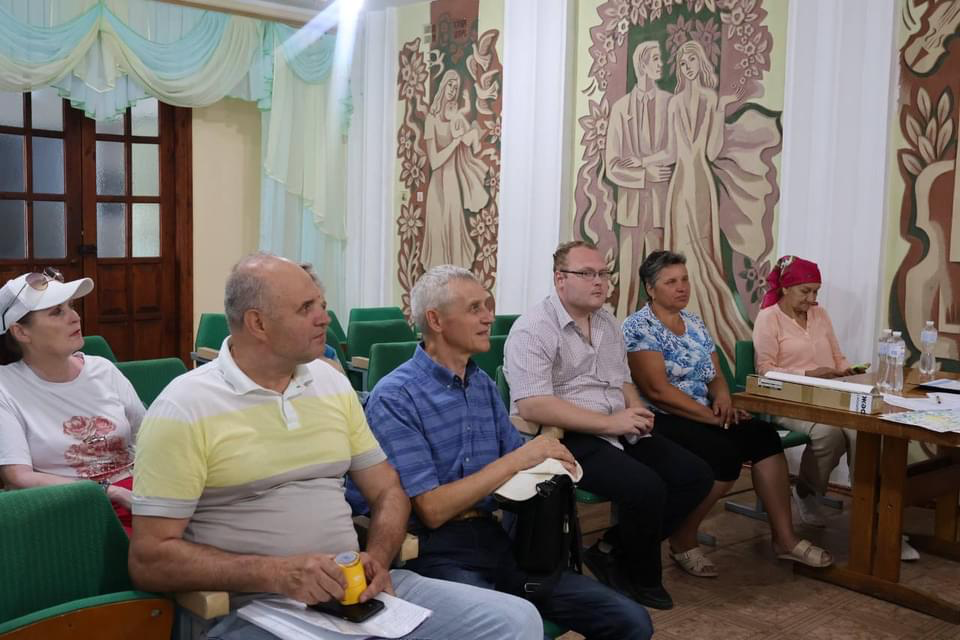
Training on cultural heritage for local historians and cultural workers in the Stepove community. Photo: Anastasia Vislenko
The Stepove community, which combines Yedysan's cultural heritage and Cossack flavor, welcomed the training. Not only amateurs but also the heads of local museums participated in training sessions with project experts. It's impossible to fully explore and study all the heritage of the Stepove area in just a few hours, so participants agreed to meet again soon for more training.
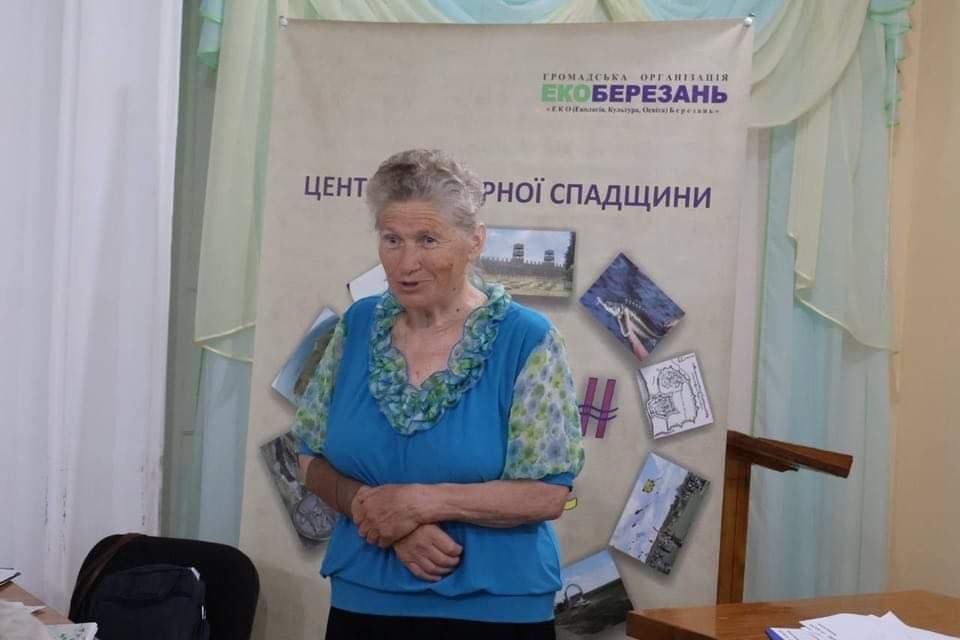
Nina Denysiuk, the author of 49 books on local history and cultural heritage, created the Museum of the History of the Village of Katerynivka and has been filling it for 24 years. She attended the training session in the Stepove community. Photo: Anastasia Vislenko
"Our meetings are not lectures but live conversations, exchanges of opinions and experiences," says the center's leader, Oleksii Sydorchuk. "The stronger ones will help the weaker ones. Training is a way to strengthen the participants. We bring leading historians and cultural experts closer to our beneficiaries, making them accessible and understandable."
Is it really relevant amid war?
At first glance, rural communities already have many problems caused by the war. The cultural sector is struggling, often underfunded and lacking resources, including personnel. Still, Oleksii Sydorchuk is certain that culture is society's litmus test and recalls a quote from Winston Churchill, who was asked to cut arts funding during World War II: "Then what are we fighting for?"
According to the project leader, the lack of fundamental tools for decolonization policies and preserving the region's cultural heritage is another reason why creating the Yedysan Cultural Heritage Center is vital right now.
"After ineffective and often imitated decolonization policies by local communities, the dominance of imperial and Soviet myths among the population creates a 'Wild Field' effect. Residual funding principles, the lack and low preparation of local personnel, and a vacuum of necessary information in communities worsen the situation," says Oleksii. "This can destroy cultural heritage, permanent historical gaps, and indifference among descendants. We offer support and a 'second wind' for preserving and reinterpreting potential. We help with tasks that are perpetually neglected. We change societal attitudes and coordinate efforts, facilitate, and assist."
The organization team says that the project is just gaining momentum. Although the center's event plan is scheduled until September, some activities have been postponed to fall to make them accessible to children and youth. Project manager Anastasia Vislenko is a member of the Youth Council under the Mykolaiv State Regional Administration, so ECE Berezan has the right partners to work with.
After the grant period ends, the most complex and responsible work — dealing with cultural heritage — begins.
"We are focused on results, which can't be achieved halfway through the project," says Oleksii Sydorchuk. "We are gaining experience for now—waiting for the 'finished dish' and not showing off the ingredients. Our project is comprehensive, and the result will be noticeable at the 'end.' Still, we have local achievements, and participants and officials feel positive emotions."


